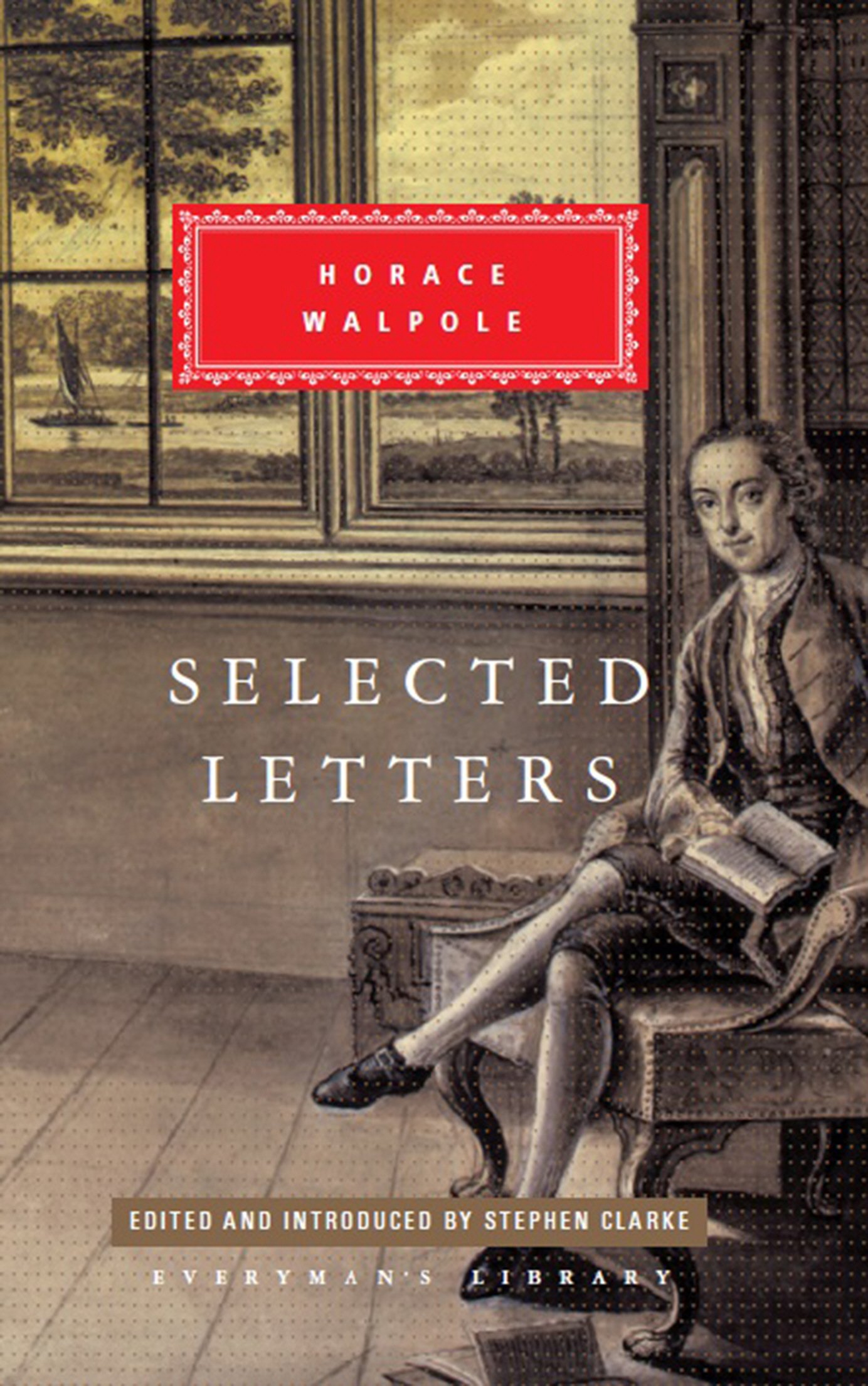The Dr Johnson Reading Circle bundled back into the house again to talk about Horace Walpole’s Selected Letters, edited by Stephen Clarke. Walpole could reasonably be described as a keen letter writer, with his full epistolary output running to forty-eight volumes. Even with a selection of only five percent of his total letters, this book is a six-hundred page beast. Luckily we had Peter Sabor, editor of Walpole’s Critical Heritage to help us navigate the life and letters.
Horace Walpole was the son of ‘Prime-Minister’ Robert Walpole and a member of parliament for twenty years. As well as socialising in political and court circles, he collected antiquities and created his own dream castle in Strawberry Hill where he published his own works, including The Castle of Otranto and the works of friends like the poet, Thomas Gray. He maintained a number of relationships by letter, including one to Horace Mann, a diplomat in Italy, for over forty years. The letters in the selection cover topics as diverse as the Gordon Riots, the death of George II, political upheaval during the American War of Independence, the joy of rooting around old churches, experiments in interior design and nights out at Vauxhall Gardens.
An interesting area of discussion was about how far the letters were written to be performance pieces and how far they were personal communications. Walpole certainly asked for some of his letters back to make copies and the more news-based ones have a journalistic quality that beg to be shared. It’s interesting to compare his descriptions of life in George III’s court to Frances Burney’s. She, being short sighted and deeply introspective dwells upon her own feelings of awkwardness but Walpole, much more at home in such settings can dwell on the details - he takes an especial pleasure in describing the women’s dresses and hats. Even in his more intimate letters he seems to be a man constructing himself by words, and it’s really interesting to see how his image of himself changes as he gets older.
He begins as the Eton schoolboy, sporting the nickname ‘Tydeus’, a brain-eating character from Greek mythology. As the son of the British Prime-Minister, he brashly took his Grand Tour with schoolfriend Gray until they had a falling out. When he grew older, he seemed to have mellowed, making jokes about being a mediocrity, dabbling in his hobbies (if starting a craze for Gothic architecture, giving birth to Gothic literature and accumulating a sizeable collection of arts and antiquities counts as dabbling) and attending too many social functions. Leaving middle-age, many of his letters talk about how shocking it is that someone of his esteemed years can keep the extreme hours of the partying set, before reaching old age and hobbling around with gout. Throughout it all, he maintains a playful, charming, and straightforward demeanour, whether it’s talking issues of national importance or about bickering in the corridors of power.
It’s amazing that he maintained so many relationships for so many years. While he clearly had a sharp tongue and was prepared to hold a grudge along political lines, once Horace Walpole was a friend, he was one for life. His letters are adapted to his recipients. Those to Hannah Moore are full of compliments mixed with over-the-top references to her piety and saintliness. George Montagu was given society news and court gossip, though when he lazily didn’t reply to his letters the correspondence drifted to the Lady Ossory. Horace Mann received personalised newspapers of British political life, while Revd Cole had news about antiquities and new methods to relieve gout. The most personal letters probably went to Henry Conway, whom Walpole said he loved and offered significant financial aid to at various points of his life.
Of interest to the Johnson Reading Circle was Walpole’s relationship to Johnson himself, or rather, his lack of it. Although they certainly moved in different circles; Walpole was located around court and parliament in the West of London, while Johnson was located in the City, they had many friends in common. Not only Hannah Moore, a frequent correspondent of Walpole, but Topham Beauclerk, a member of The Club whose wife gave her name to the conical tower in Strawberry Hill. The two, however, did not write and possibly never even spoke and if they did, would probably not have hit it off. Walpole regarded Johnson’s writing as ‘teeth breaking’, and while they agreed that slavery was an evil, they would have clashed on almost any other political discussion, particularly the American Revolutionary War, which Walpole saw as a fair reaction to Britain’s heavy-handed treatment, Johnson saw as a hypocritical ‘yelp’ for liberty.
The Reading Circle could have spent many more hours discussing the nuances of Walpole within his letters, and the sheer variety of subject and incident but time was ticking and the local pizza place is on reduced hours, so we had to break our meeting, still brimming with wine and thoughts. It was a delight to be in the house, a delight to have a number of new members, a delight to see each other in person and a delight spend some time with Horace Walpole.



No comments:
Post a Comment